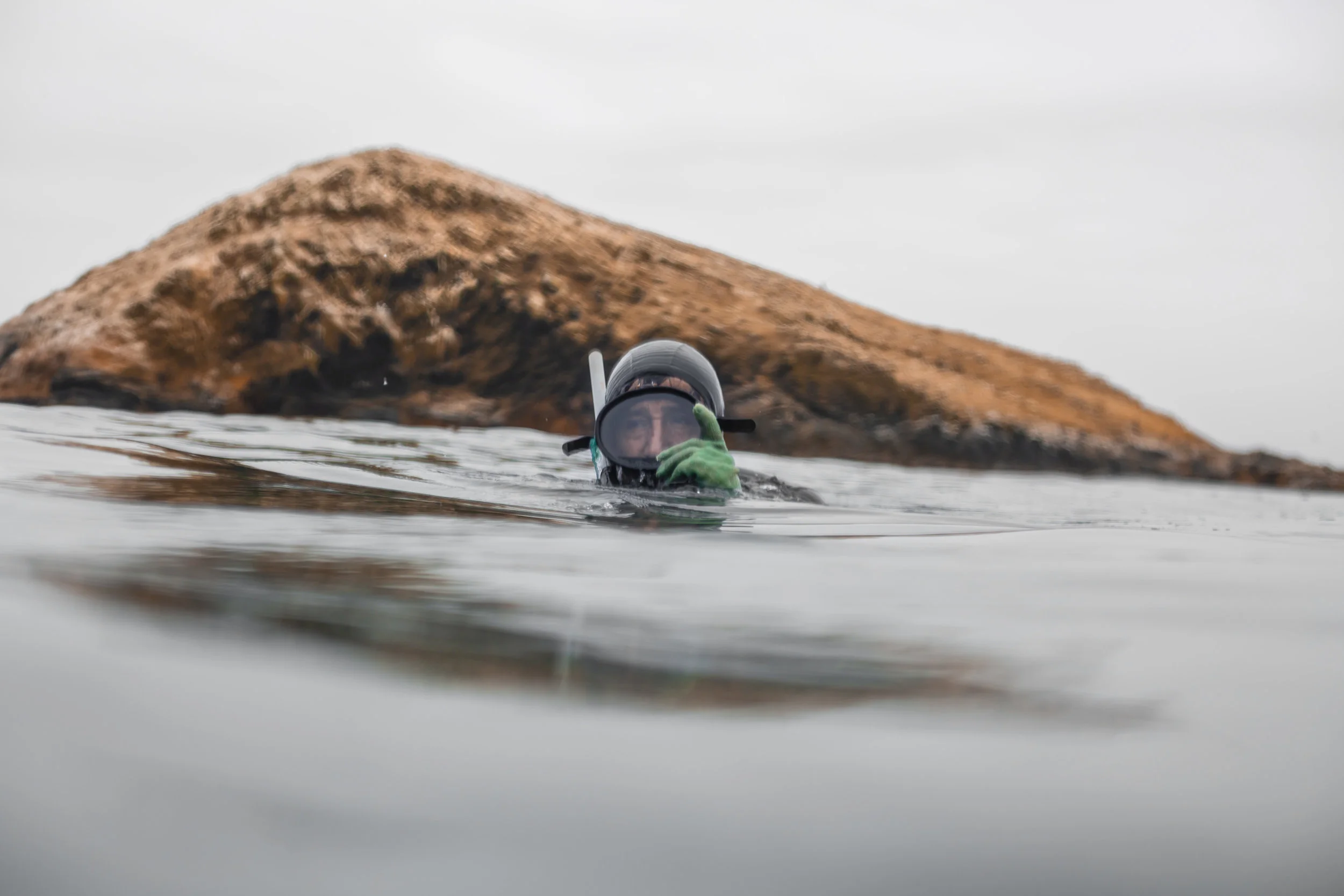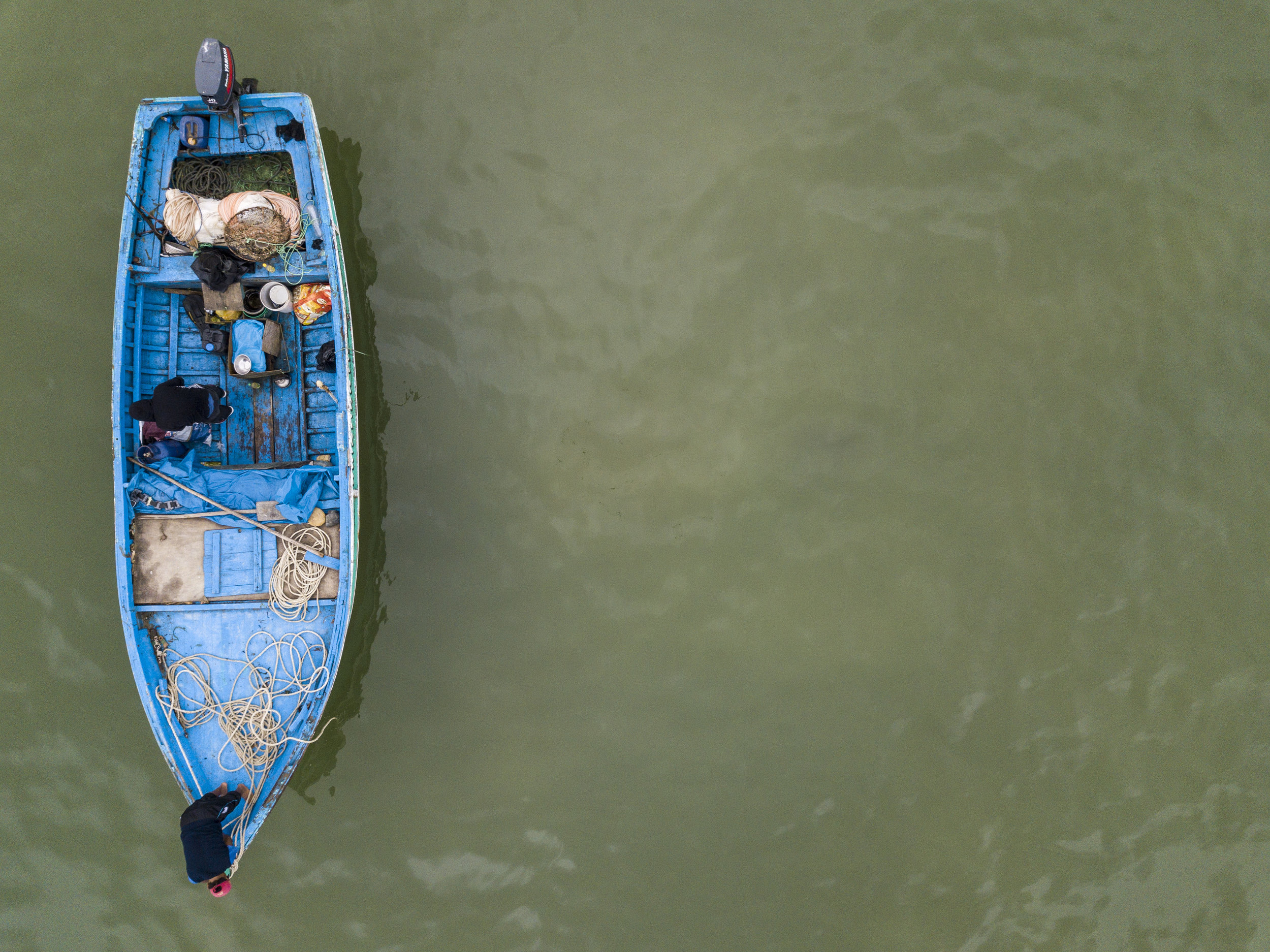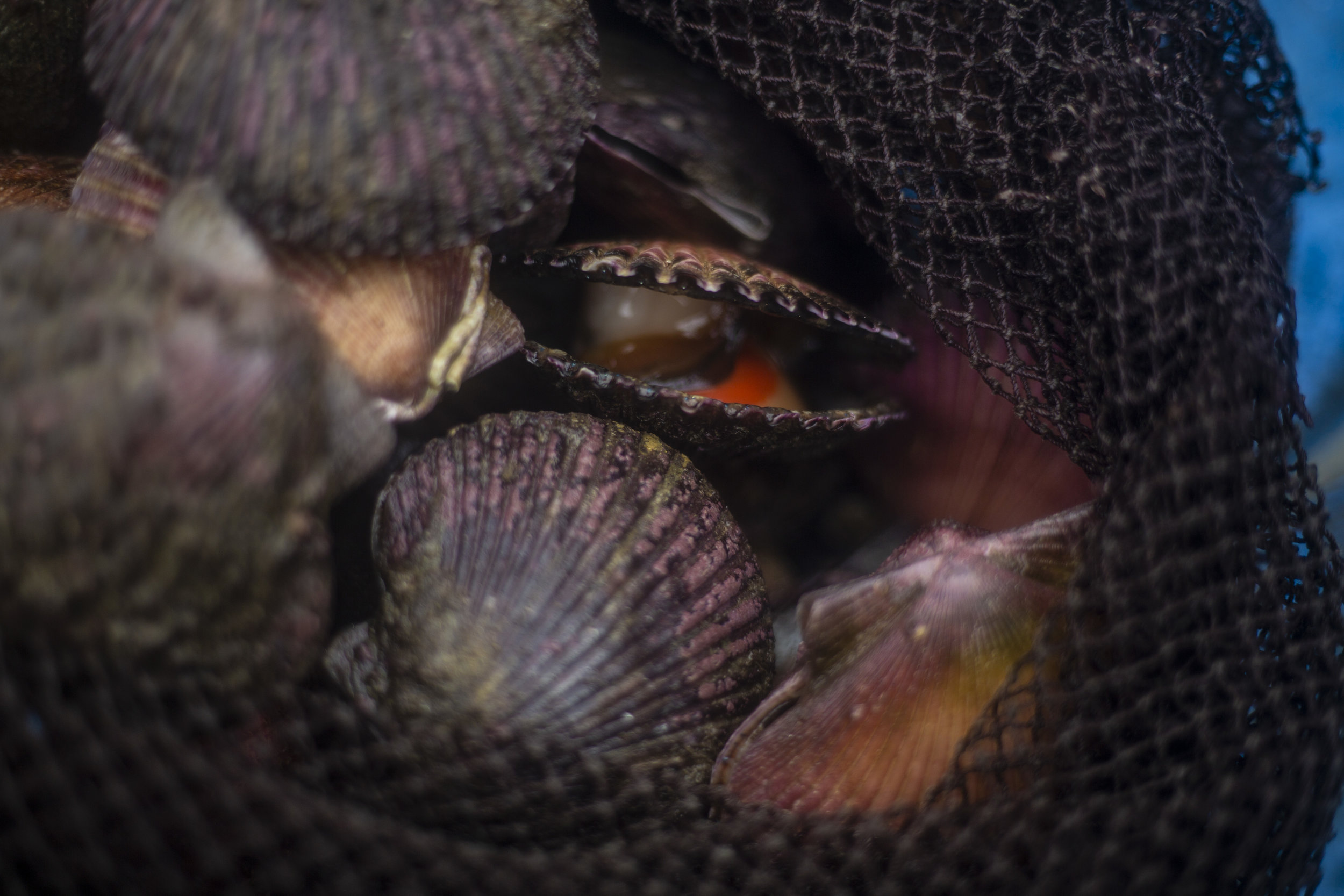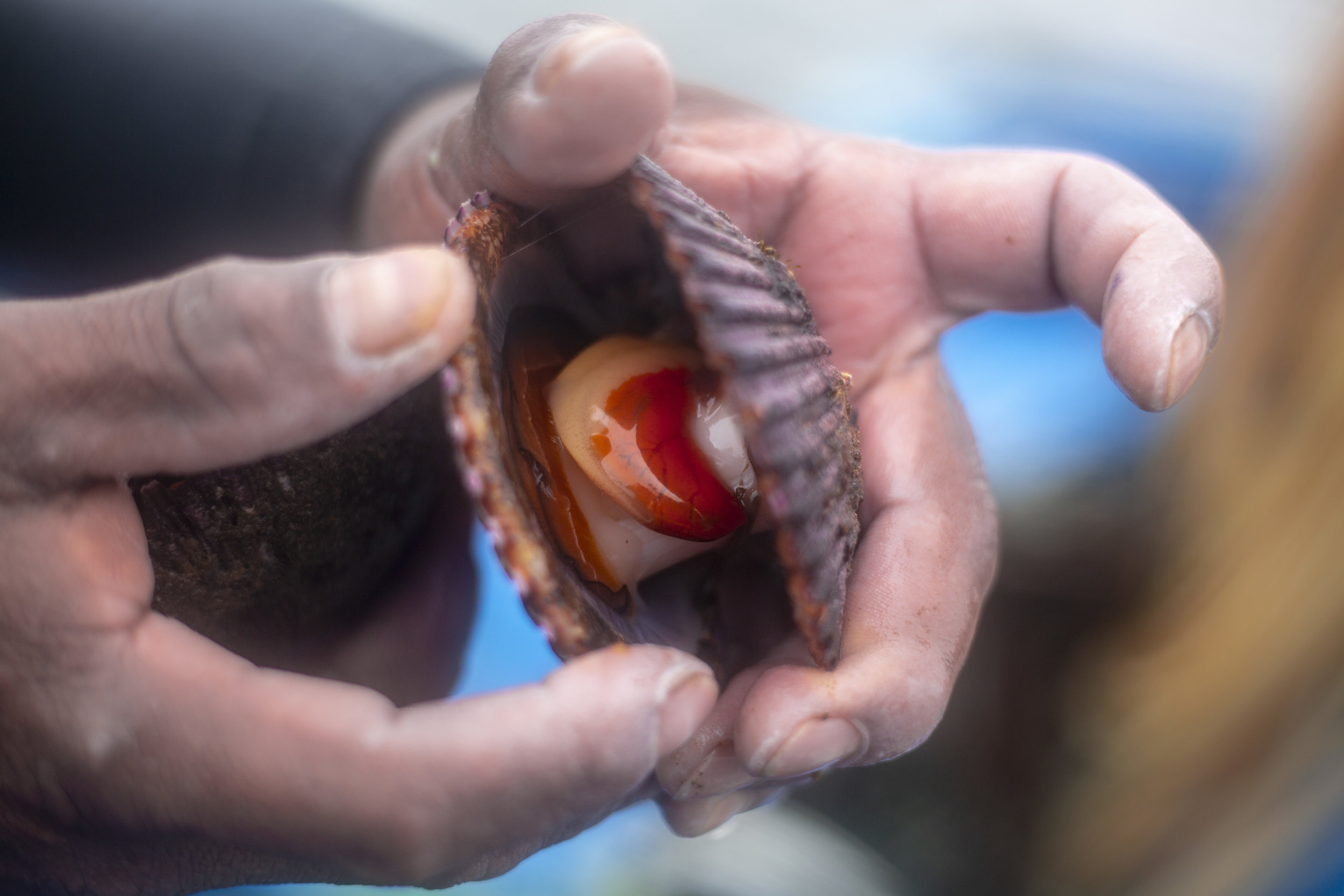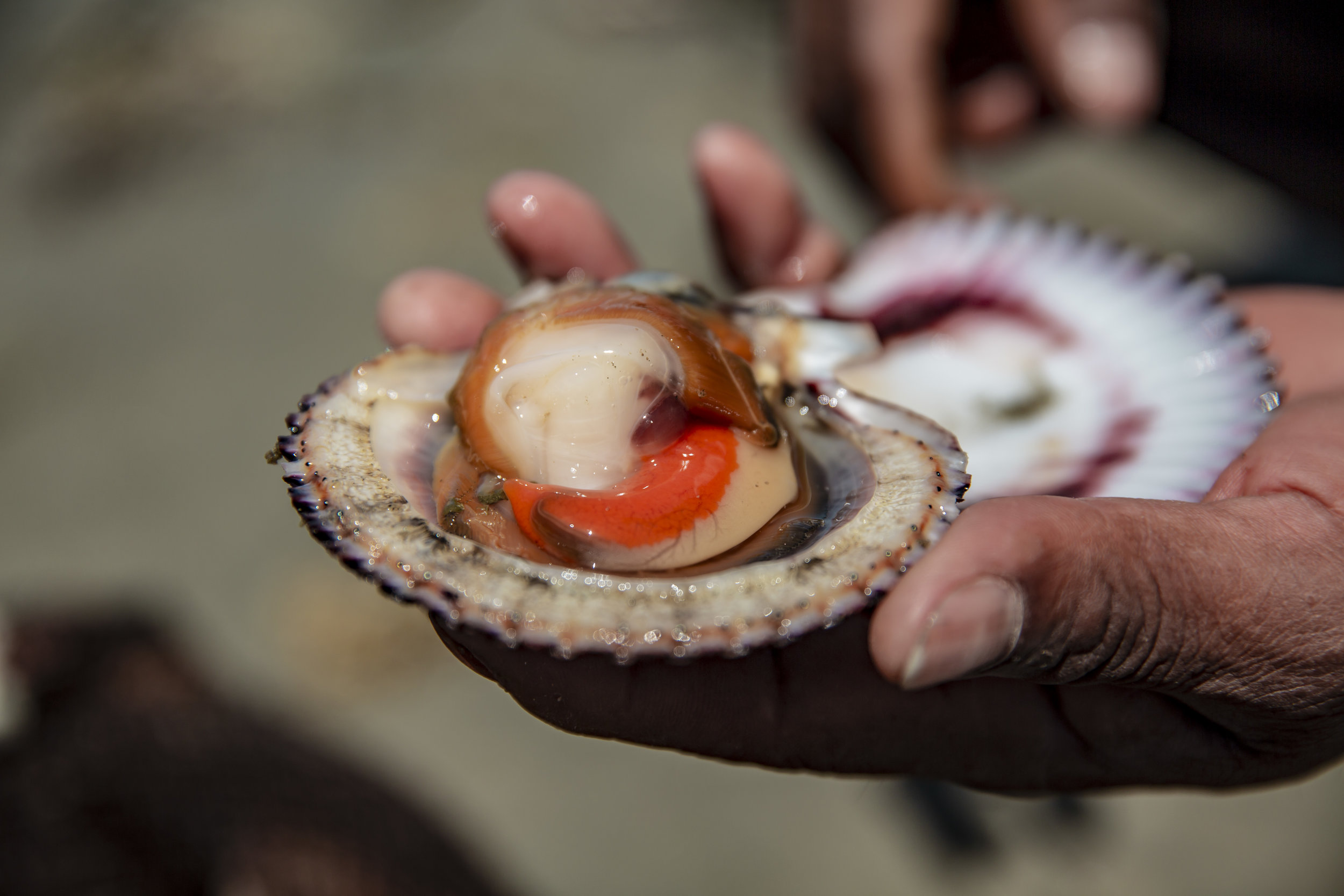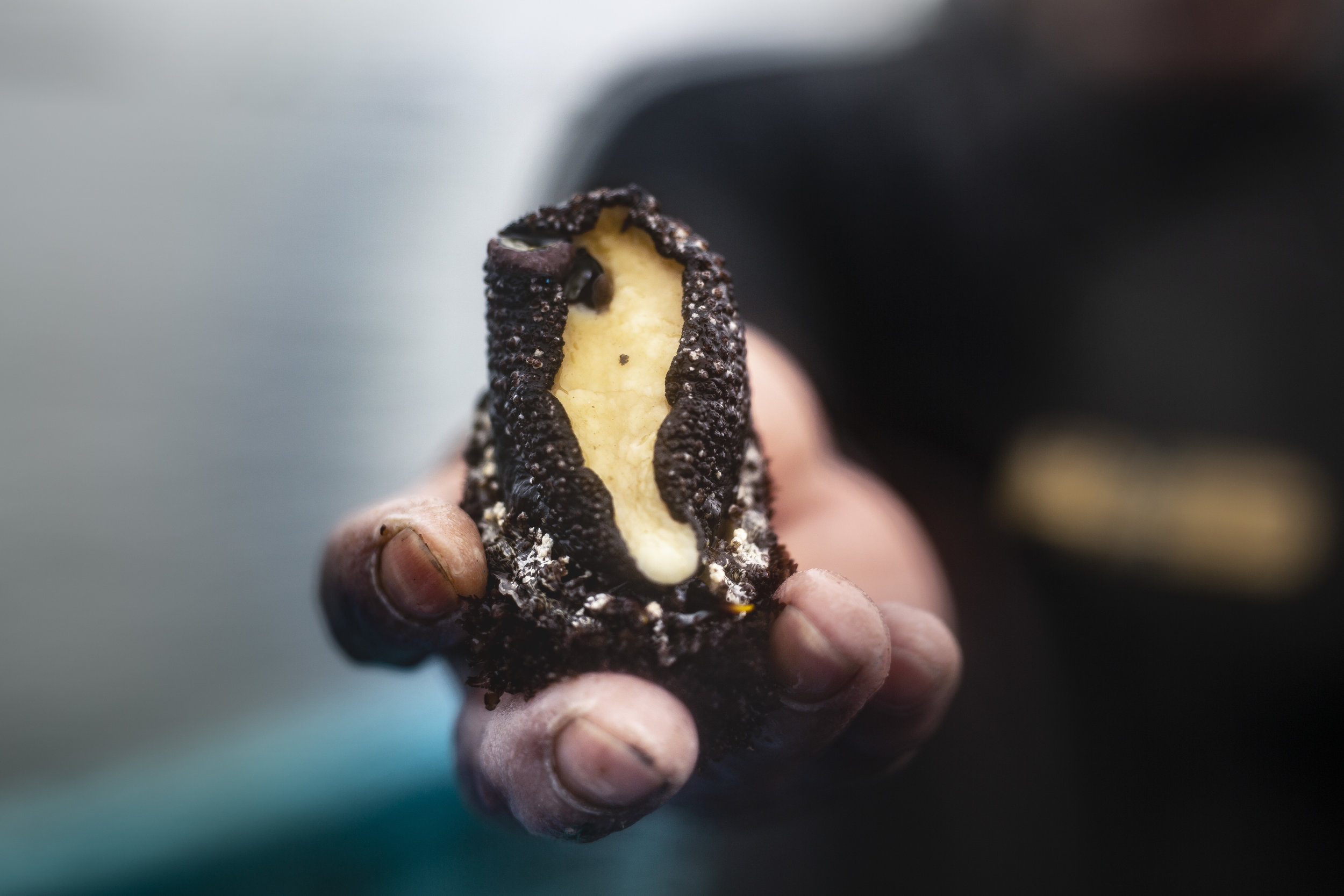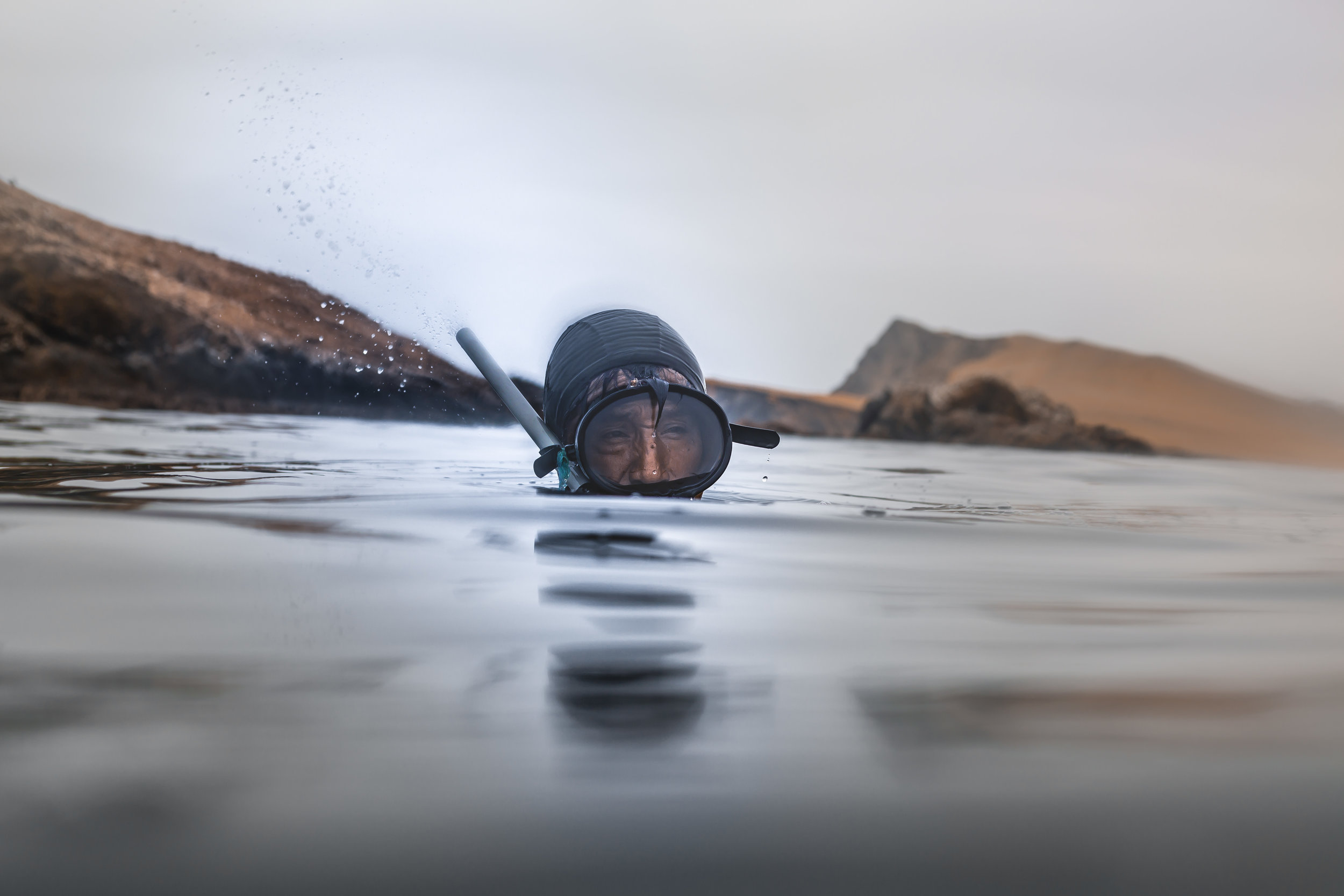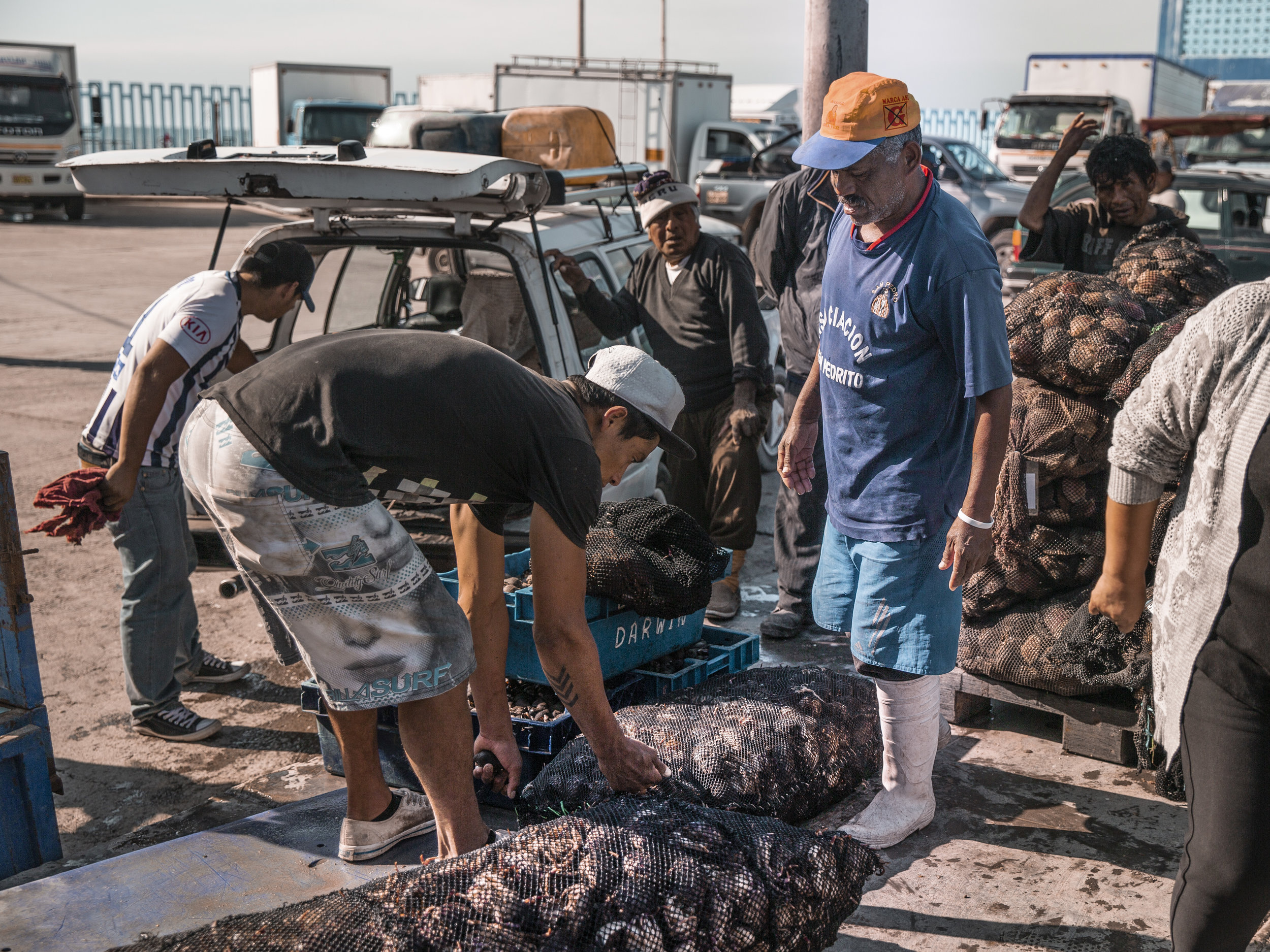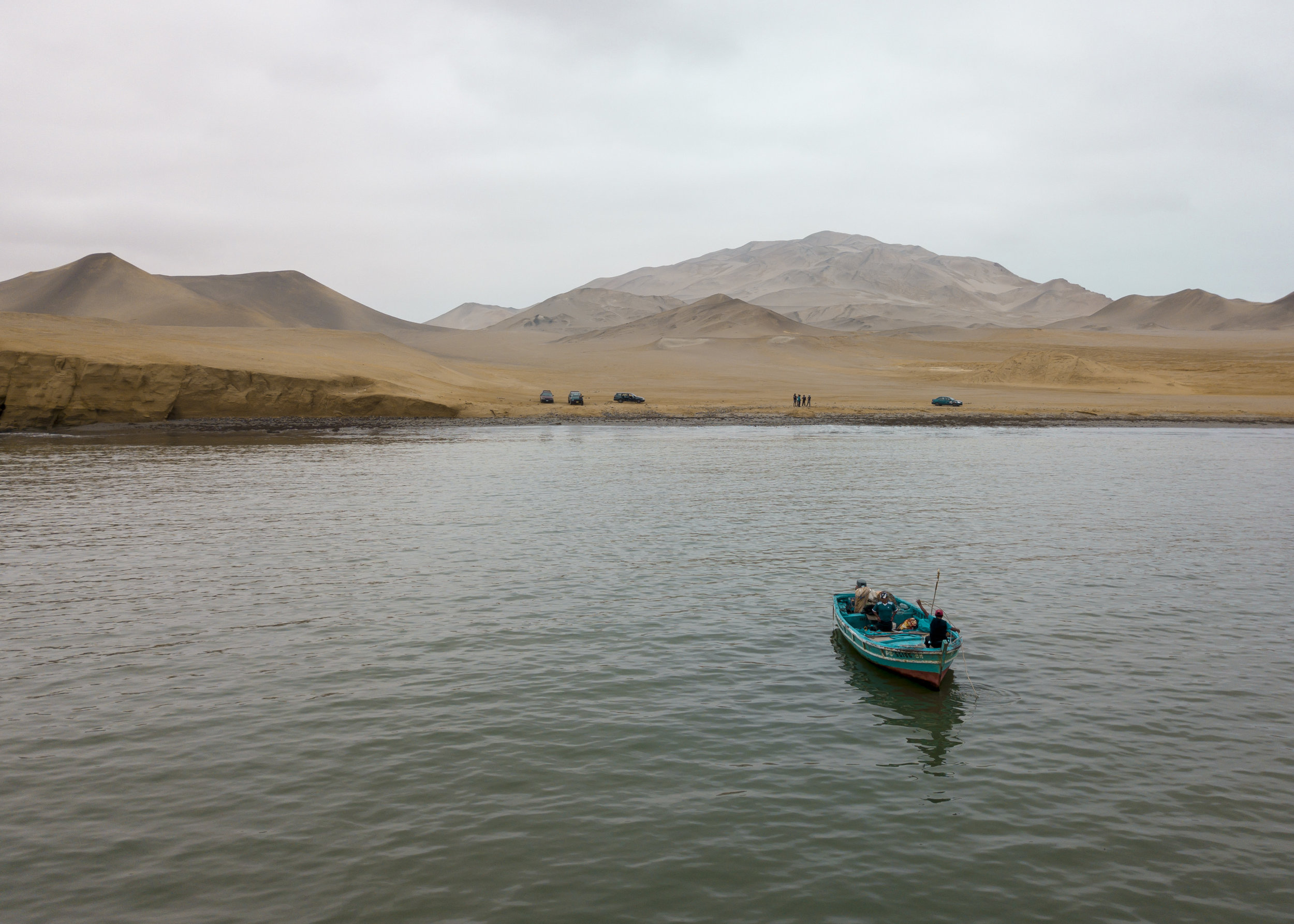At five years old, Paco’s father introduced him to the ocean for the very first time.
“It was immense,” he recalls of his first reaction. Ana Sotelo for NESsT
Like many of the fishers in Pisco, Paco’s father emigrated from the highlands of Puno to Pisco to become a fisherman.
Ana Sotelo for NESsT
Ana Sotelo for NESsT
At 12, Paco began free diving for shellfish such as scallops, octopus and limpets. His instructor, none other than his father.
“I must have swallowed around two or three liters of water when I first learned to dive. Now, they call me the Sea Lion. ”
Paco, the Sea Lion. Ana Sotelo for NESsT
Paco boasts as he explains how he is the oldest member of the Beatita de Humay Fishers’ Cooperative. He was also elected as president.
When Sustainable Fishery Trade was searching for allies to scale conservation in the region, they came across someone who’s urgency and concern for the ocean was rapidly increasing. This person was Paco.
Pascual in Paracas, Peru. Ana Sotelo for NESsT
“I’ve been here long enough to see how things have changed. Now I’m interested in teaching the new generation of fishers that we can all become conservationists because, at the end of the day, we depend on the sea to survive.”
With Sustainable Fishery Trade, Paco found a partner to take action regarding the problems that were troubling him: the livelihood of fishing communities and the prevalence of marine species populations.
At 55, everything he does, he does for future generations.
Sustainable Fishery Trade (SFT) is a social enterprise based in Lima that pays fishers above market-rate prices, with the caveat that marine resources are fished sustainably and adhere to conservation regulations.
Most fishers in Pisco sell to large industrial intermediaries, who then sell it to larger distributors. This process places no attention to size, quality or species bans.
Paco and Simone. Ana Sotelo for NESsT
At the fishing ports where fishers negotiate prices with intermediaries. Ana Sotelo for NESsT
“Fishers sell in bulk to intermediaries at the market. Since the intermediaries decide the prices at their own will, focusing on quantity is one way that fishers make sure they earn enough to sustain their families.”
A mature and younger scallop side-by-side. Size regulations are one way to ensure that marine species are given enough time to reproduce before they are collected for human consumption. Ana Sotelo for NESsT
Like Paco, most of the fishers in Pisco have come from Puno in search of better opportunities.
As a loving parent would share with his children, Paco exclaims to the cooperative, “If I’m concerned about our resources after 43 years of fishing, you should be twice as worried!” Ana Sotelo for NESsT
As the conservationist and businessman that he is, Paco came came to his Cooperative with an idea: to breed their own scallops in the wild. To do so, they coordinated with local government to set a ban on the collection of small scallops long enough for them to reproduce.
The results were optimal. This pause allowed the scallops to breed and reproduce. It created an uptick in the volume of large scallops Paco and his partners could sell to buyers prioritizing sustainability, like SFT.
For Sustainable Fishery Trade, working with fishers like Paco, who value conservation of the ocean goals is ideal. To date, it has trained 750 people in fishing communities and provided income-generation opportunities for 135 fishers.
Simone speaking with members of the Beatita de Humay Fishers’ Cooperative. Ana Sotelo for NESsT.
“This partnership guarantees to consumers that what they are eating is not harming the ocean or those the people who depend on it for their livelihoods.”
Day by day, Paco works alongside younger fishers to make sure that they have the motivation to continue down this path of sustainable fishing.
To support fishing communities in its supply chain, SFT also developed a mobile application that ensures traceability of seafood in real time.
“We decided to make a living out of the sea, which is why we need to treat it with care and respect. Selling to buyers who value our product is the best way to care for our future.”
Paco inside his boat in the ocean of Paracas, Peru. Ana Sotelo for NESsT
“If we do not preserve [the ocean], who is going to do it? we have to do it, yes or yes.”
Paco in his home. Ana Sotelo for NESsT
“¿Si no preservamos [el oceano], quien lo va a hacer? Hay que hacerlo, si o si. ”

